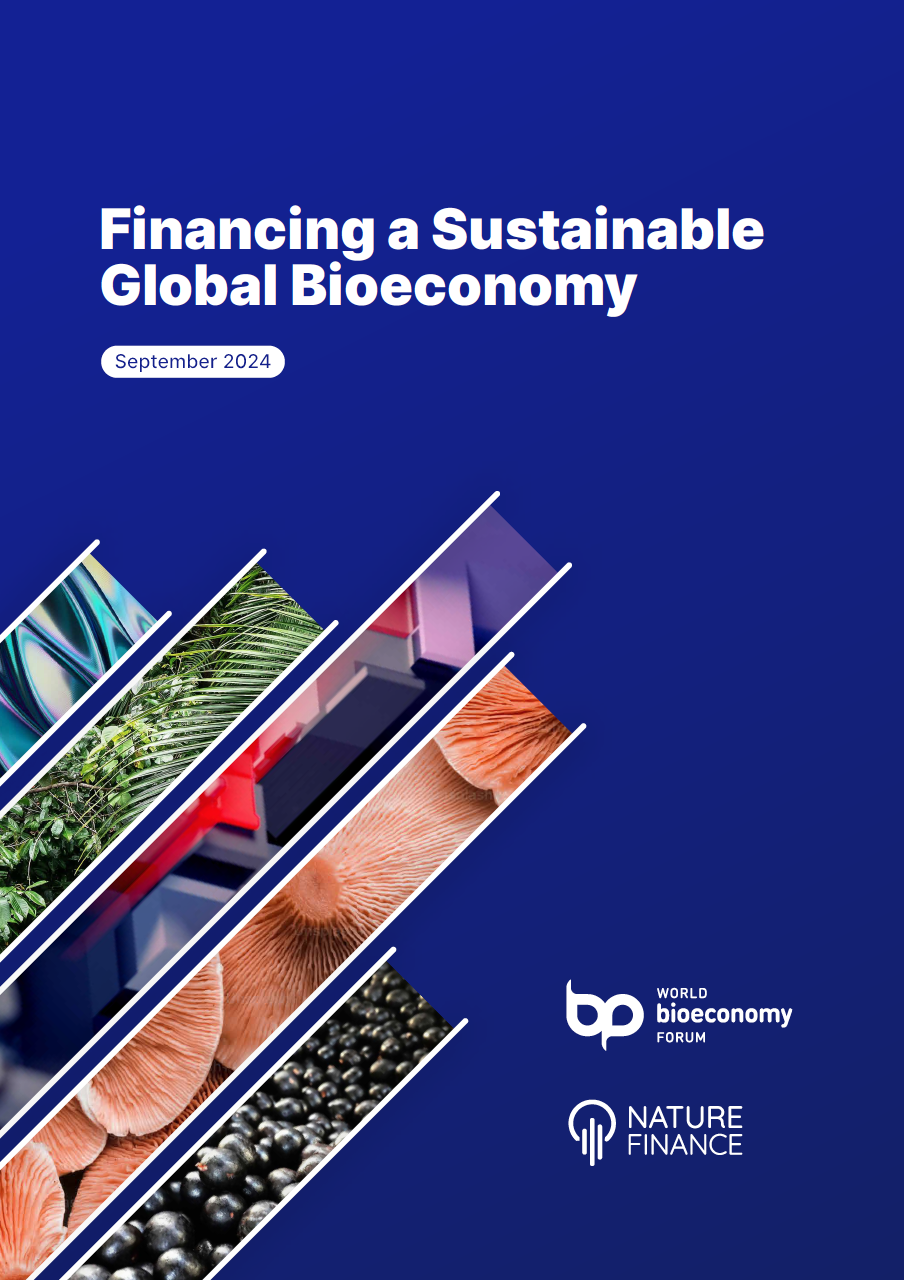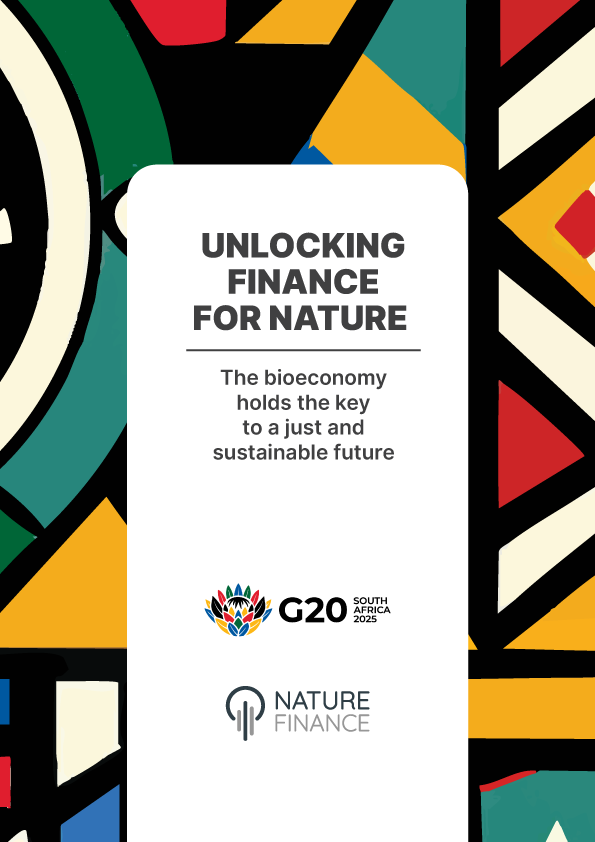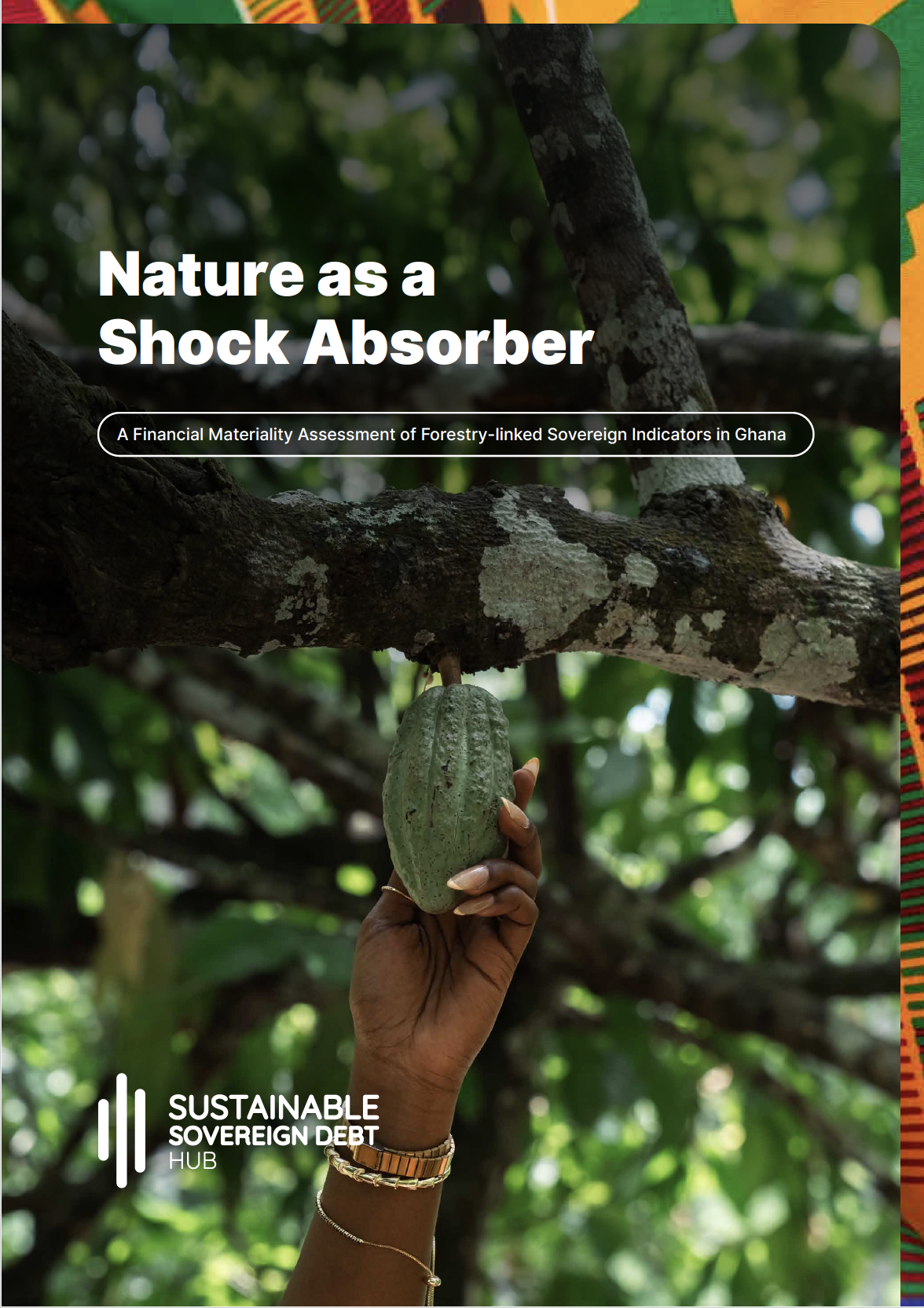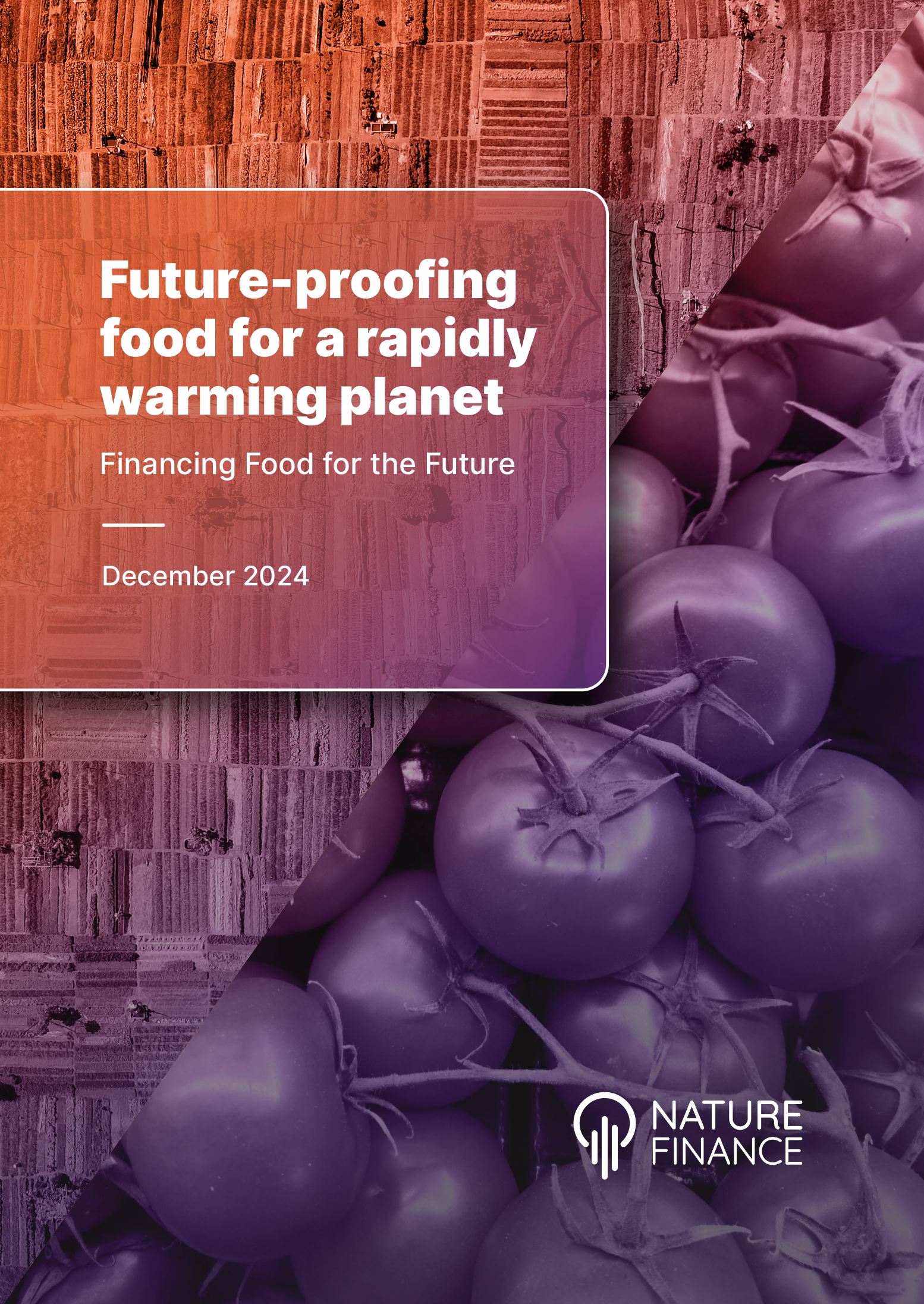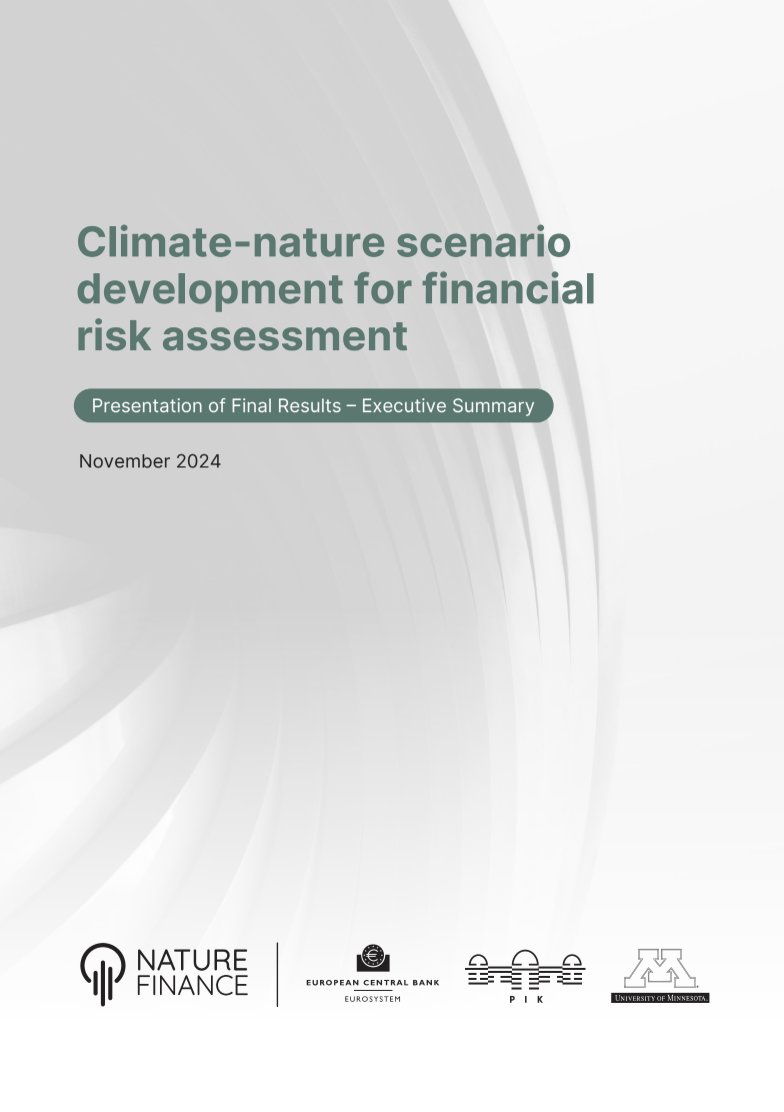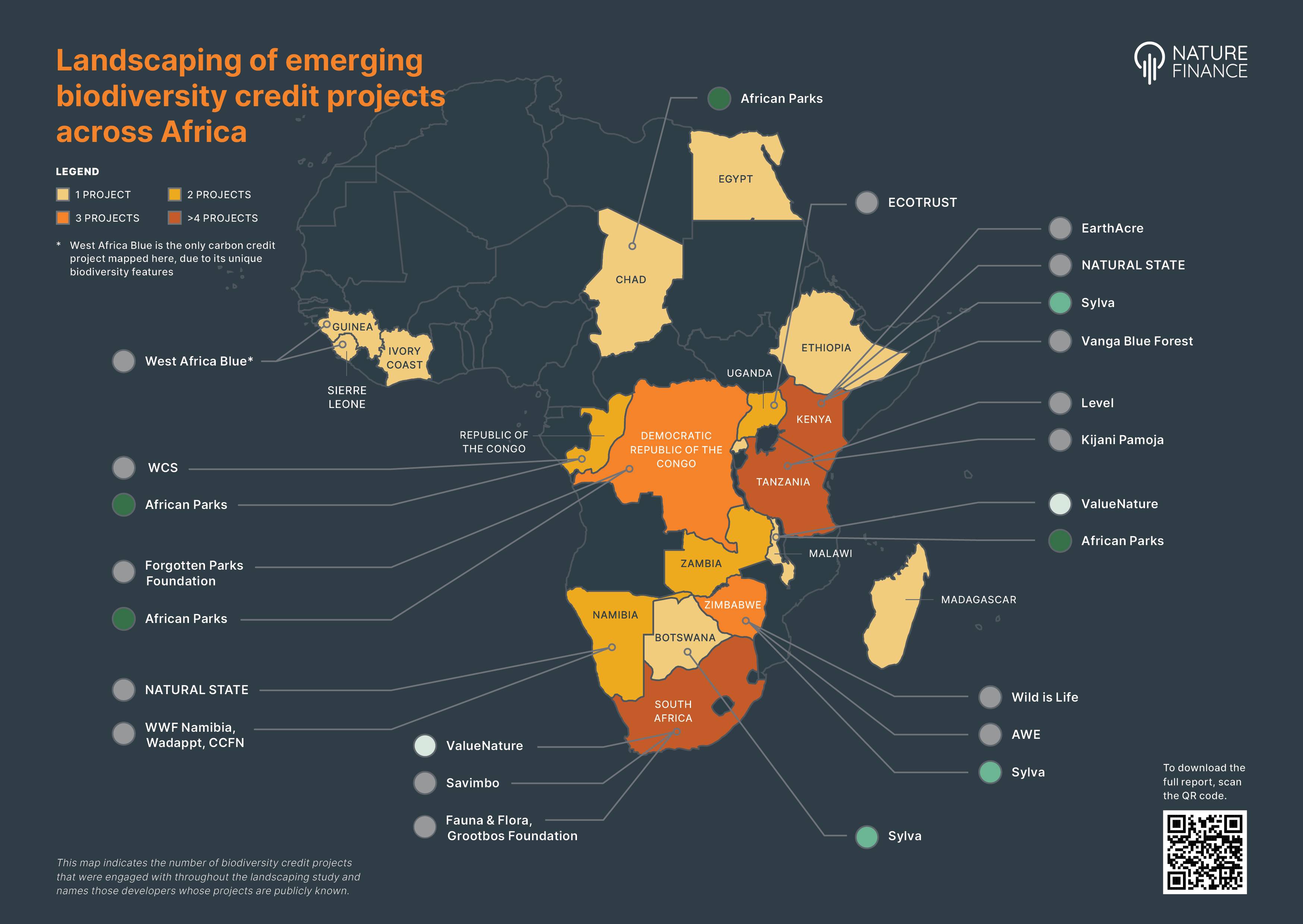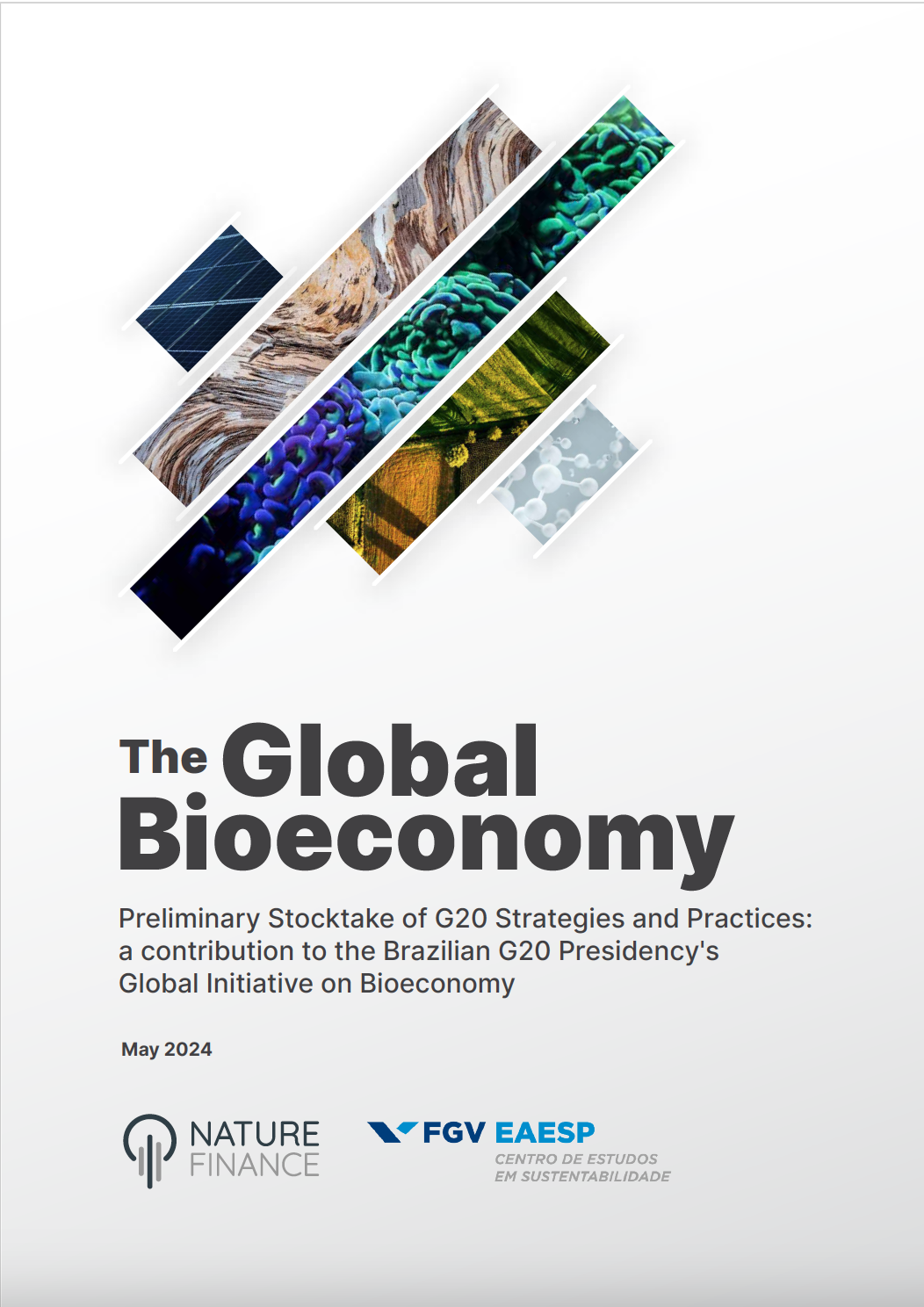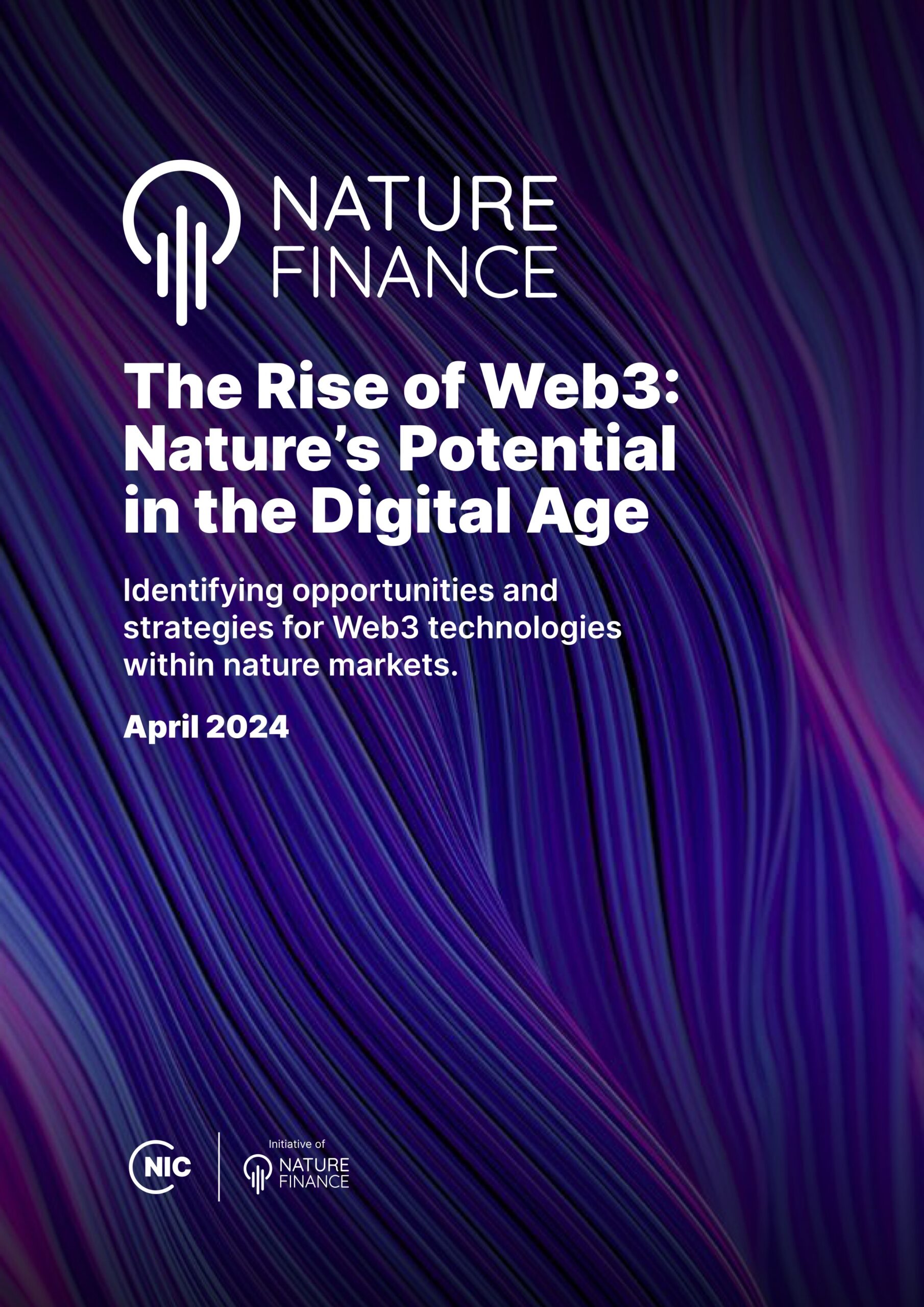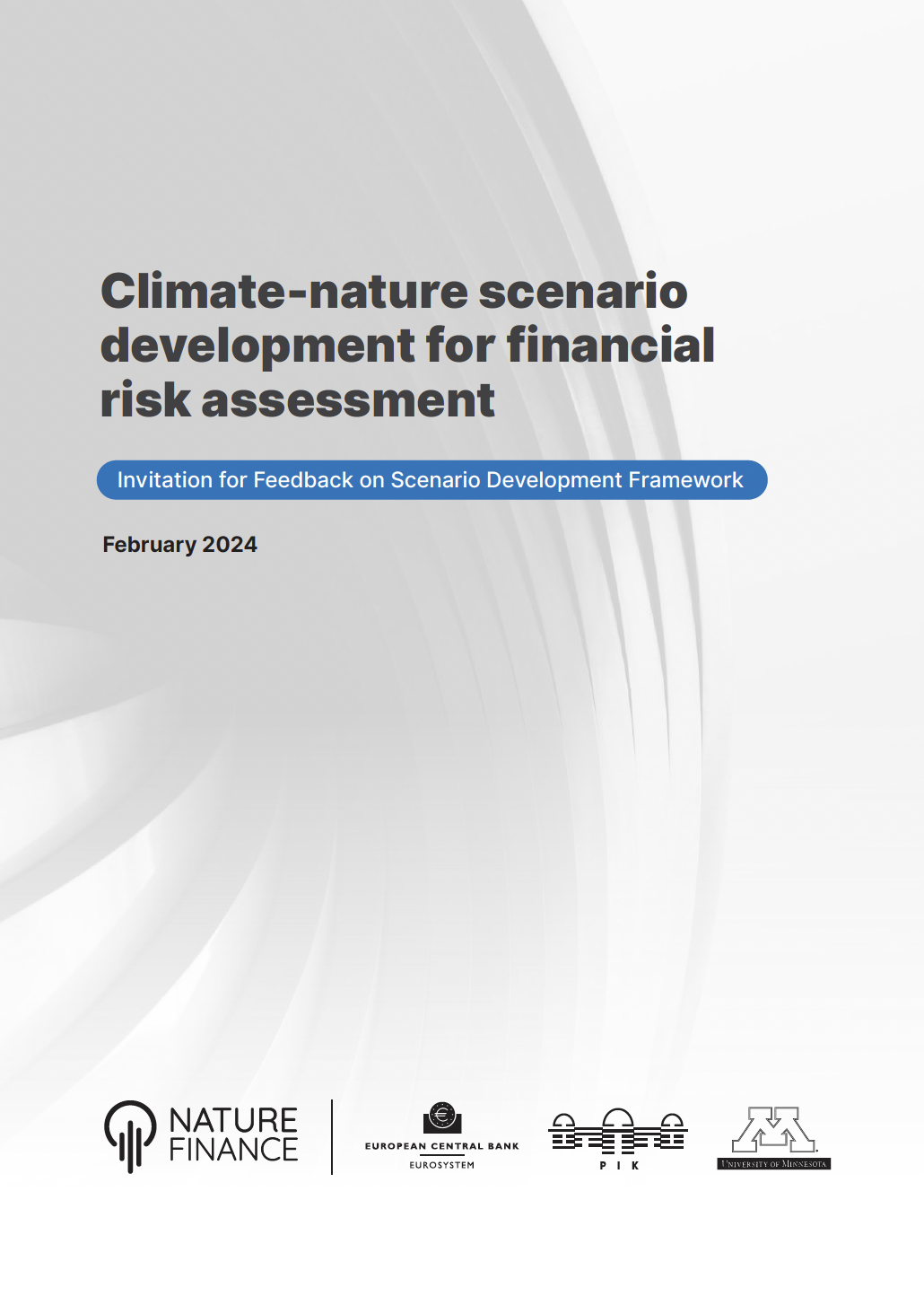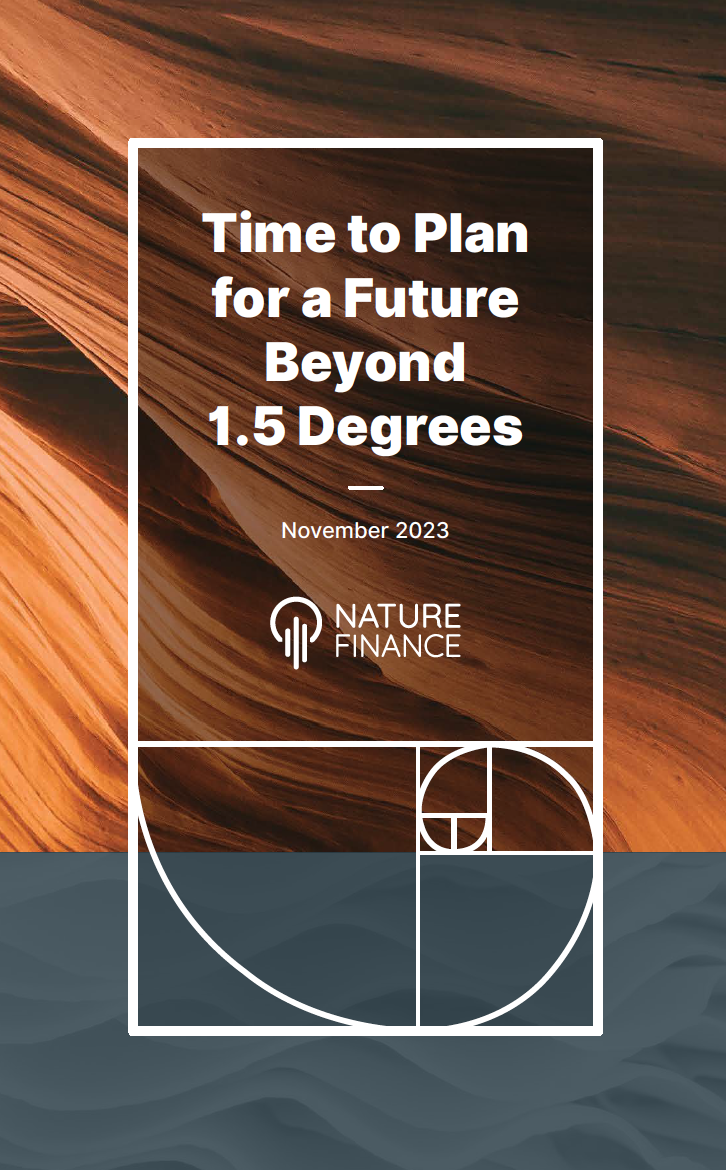Without a bioeconomy, there is no chance of a just and sustainable transition.
Financing a Sustainable Global Bioeconomy released Sept 12, 2024, is a landscape analysis of the current and prospective interplay between finance and the bioeconomy authored by NatureFinance and the World Bioeconomy Forum, with the support of dozens of civil society organisations*. It builds on two key pieces of work contributed to the G20 Bioeconomy Initiative, created by the Brazilian G20 Presidency earlier this year.
The growing recognition of the importance of the bioeconomy is exemplified by Brazil’s decision to establish the G20 Initiative on Bioeconomy as part of its G20 Presidency, the prioritisation of finance and the bioeconomy set out by the Colombian Presidency of the forthcoming United Nations Biodiversity Conference of the Parties of the Convention on Biological Diversity (COP16), and hopefully the continued place of the bioeconomy in key policy platforms going forward, including the G20 under South Africa’s Presidency and COP30 chaired by Brazil, both in 2025.
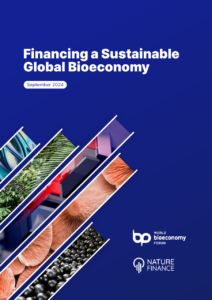
Key Findings
- The global bioeconomy is essential for a just and sustainable transition. Without it, the chances of achieving climate resilience, a nature-positive economy and sustainable development are slim. This is a ‘power of now’ moment.
- The bioeconomy holds the potential to become the counterpart investment opportunity to the existing trillion-dollar-a-year clean tech investment landscape. This massive economic and job creation opportunity could shape the future of both biodiversity and global financial flows.
- The bioeconomy spans a broad spectrum from local, nature-intensive practices to high-tech innovation. However, it must be developed sustainably, both environmentally and socially; otherwise, it risks deepening existing problems. Innovation, standards, and oversight are critical to ensuring it is not only extractive.
- The bioeconomy must be sensitive to the needs and norms of nature’s stewards, including Indigenous Peoples and Local Communities (IPLCs). A socio-bioeconomy approach ensures that economic activities are integrated with the vision of these stewards, respecting cultural and ecological values.
- Nature-rich countries need to move up the bioeconomy value chain and secure better pricing for their natural resources. Without this, they risk being excluded from the benefits or being under-remunerated. It is crucial to avoid repeating past injustices and value extraction without development.
- The international financial and economic architecture must align with the imperatives of a just and sustainable bioeconomy. This alignment, supported by key global players and high-level initiatives like the G20, is essential for continued progress.
Launch event, in Rio de Janeiro
Explore related resources
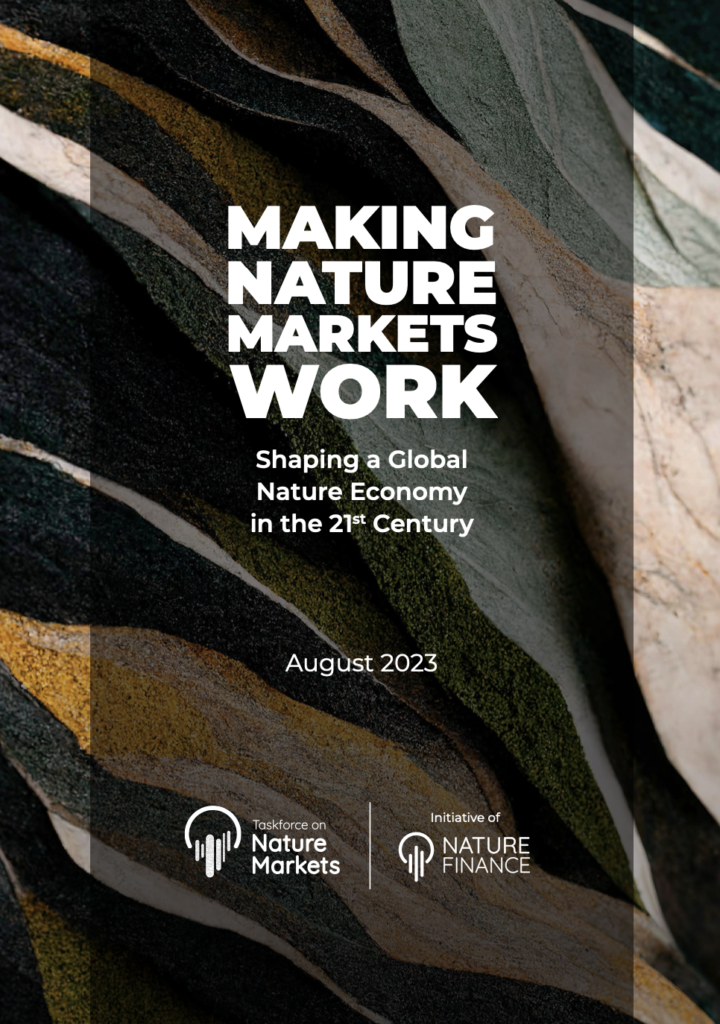
The Taskforce on Nature Markets, an initiative of NatureFinance, has set out 7 recommendations to embed nature and equity goals into global financial activity. Read more…
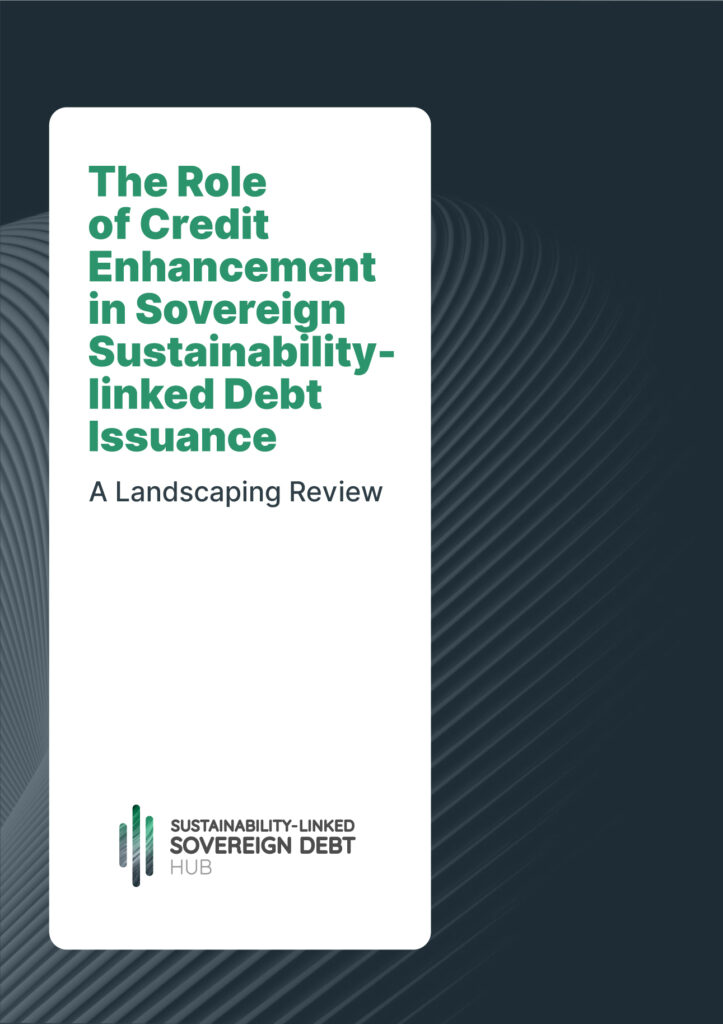
Scaling sustainability-linked sovereign bonds can catalyse the called-for revolution in sovereign debt markets. Learn more…
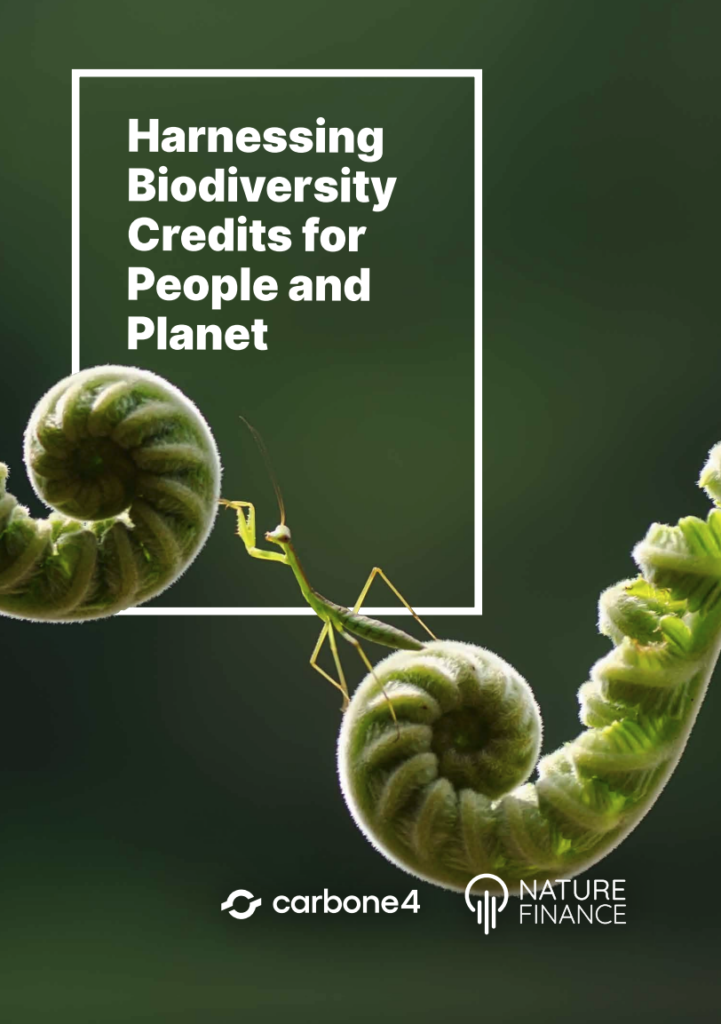
Biocredits can produce the scaled financing and incentives needed for businesses and economies to better align with the Global Biodiversity Framework and the Paris Agreement. Read more…
Contact and more information
For media and communications enquiries, contact Jo Benn, Head of Communications at NatureFinance jo.benn@naturefinance.net
*The G20 Initiative on Bioeconomy Support Group includes: Alana Institute; Amazon Concertation; Amazon Environmental Research Institute (IPAM); Arapyaú Institute; Brazilian Business Council for Sustainable Development (CEBDS); Brazilian Centre for International Relations (CEBRI); Brazilian Coalition on Climate, Forests and Agriculture; Brazilian Tree Industry (IBÁ); CDP Latin America; Climate Policy Initiative (CPI); Dom Cabral Foundation (FDC); Getúlio Vargas Foundation (FGV); Igarapé Institute; Insper Agro Global; Interstate Consortium for the Sustainable Development of the Legal Amazon; Natura & Co; NatureFinance; The Brazilian Federation of Banks (FEBRABAN); The Institute for Climate and Society (iCS); The Nature Conservancy (TNC); and the World Wide Fund for Nature (WWF).
